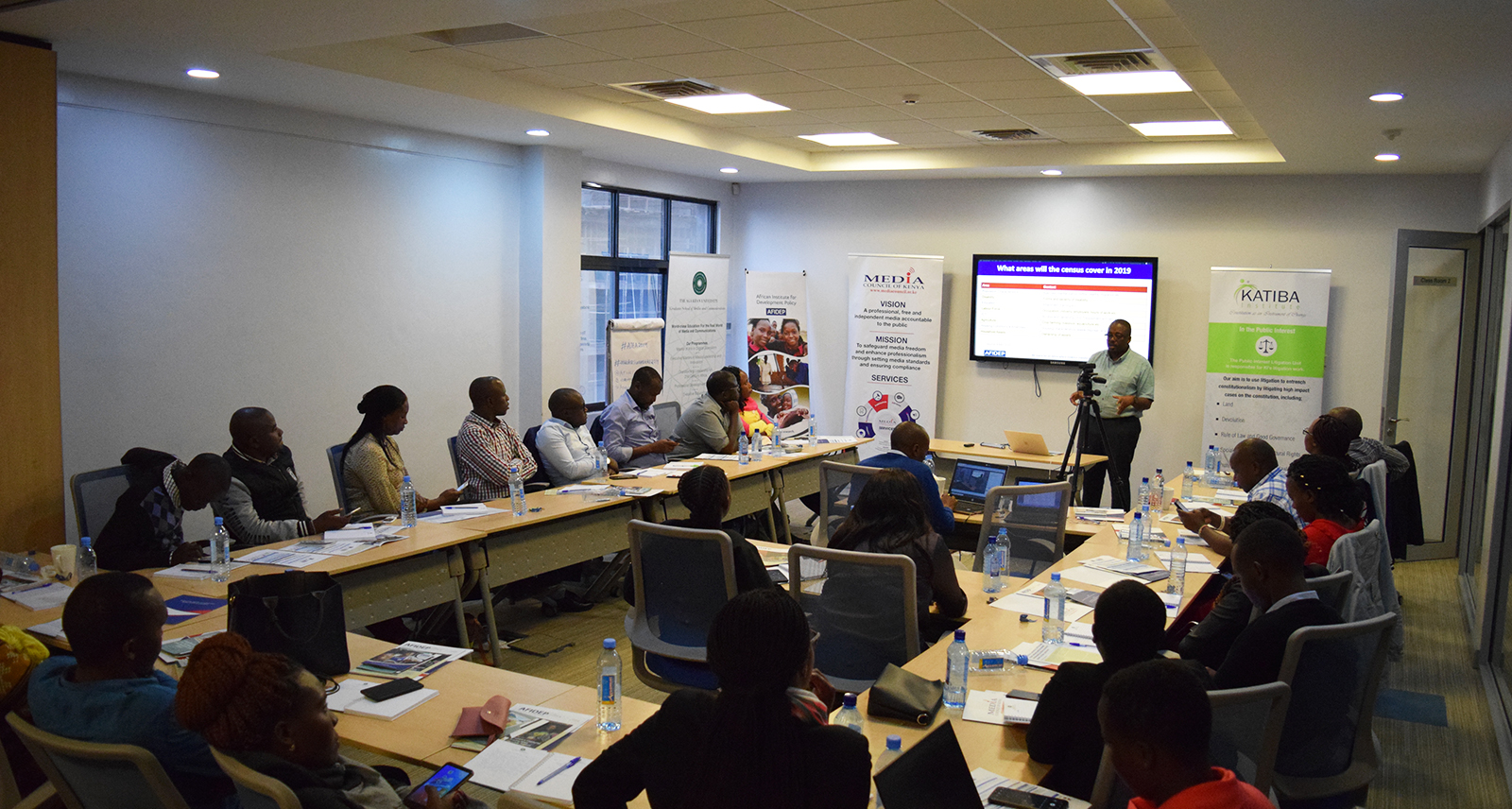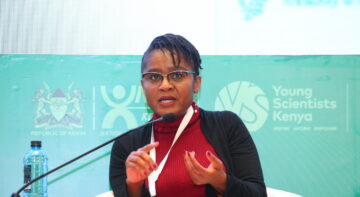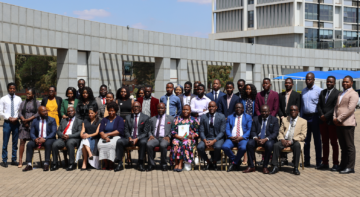Blogs

The media plays an invaluable role in promoting good governance and driving development in Africa. By covering stories, events and investigating issues that directly or indirectly affect the everyday lives of ordinary people, the media creates public awareness, influences behaviour, shapes public policy and opinion, and acts as a watchdog. AFIDEP appreciates the media’s contribution towards development efforts in Africa by creating healthy debates around issues of science; governance and accountability; the environment and climate change; reproductive health; population health and sustainable development, and through leveraging on partnerships with the experts on these issues to contribute to making the discussions be informed by evidence.
By covering stories & investigating issues that directly or indirectly affect the everyday lives of ordinary people, the media creates public awareness, influences behaviour, shapes public policy & opinion, & acts as a watchdog. Share on XIn this regard, AFIDEP is keen to cement a mutually beneficial relationship with the media in the various African countries that we work in. The goal is to improve how scientists and researchers view the media and media platforms, and vice versa, and to also improve the quality of journalism by nurturing a culture of evidence-based reporting. For instance, three weeks ago, AFIDEP initiated a partnership with the Media Council of Kenya (MCK), a statutory body mandated to develop and regulate the media in Kenya. The partnership was marked by AFIDEP’s involvement in the Annual Media Summit, a signature event of the MCK, in collaboration with various partners.
Taking place between 7-9 August 2019 in Nairobi, Kenya, the Media Summit brought together journalists, diplomats, governance experts, and academicians to discuss and share experiences under the theme: ‘Media, accountability and good governance’. The 8th edition of the Annual Media Summit kicked off with a one-day pre-media training for selected journalists from across the country, and culminated into the Annual Journalism Excellence Awards (AJEA) Gala Dinner, which recognised and awarded journalistic excellence.
Supporting evidence-based reporting on Kenya’s 2019 Census
AFIDEP’s Dr Rose Oronje and Dr Bernard Onyango facilitated training sessions during the pre-summit training, which focused on giving support and ideas to journalists on reporting on the August 2019 Census in Kenya. Highlighting the key areas journalists can focus on during the national census exercise; Dr Onyango spoke to the need for journalists to report on the census beyond the count. He urged journalists to refrain from focusing on the political angle of the numbers and rather draw the public to the importance of the census and how it will contribute to the country’s development.
The national population census is a necessary development tool because it provides a basis for adequate policy and programmatic planning. In-depth information will be generated from the census, which may reveal aspects such as population structure, fertility trends, education attainment, employment rate, housing conditions, and migration trends, among others. This information will help to inform public policy amendments as well as make projections for future development needs.
Notably, the 2019 census is the first census to be carried out under Kenya’s 2010 Constitution and its devolved system of government. County governments are set to benefit from the data collected, which can be used, for instance, to inform the county integrated development plans.
Why use evidence in journalistic reporting?
In her presentation, Dr Oronje said, “We [AFIDEP] appreciate the way the media is currently using data in their stories. The stories have been transformed by use of data and research.” She urged journalists to take advantage of academic research as sources in their reporting, drawing attention to how research findings can create powerful news stories relevant to their audiences.
The use of evidence as a basis for journalistic reporting not only enhances the accuracy and objectivity of a news story, but it also helps journalists to address issues in a more informed and impactful way. Dr Oronje noted that increased use of research and data would further strengthen the media’s role in development.
When it comes to reporting on science and research, serious concerns have been voiced regarding the current practices and capacities of journalists. Journalists often have difficulties reporting on science and research due to the technicality of content while researchers do not trust journalists to report accurately. Yet, the media is a strategic conduit that can link the public, researchers and policymakers. Researchers can use the media to advance their findings to the top of the policymakers’ agendas and on the other hand, the media can engage the public in awareness, policy development and implementation.
Engaging and working with the media, is one of the many actions that AFIDEP has taken to enhance understanding of science and research by the public, policymakers and the media itself. We endeavour to inculcate a culture of evidence-based reporting in addition to improving the way journalists write and present their information.
Evidence-based journalism calls for journalists to collect, assess and combine adequate and credible information on a given issue, ensuring that their sources are reliable and that the information is factual. It also extends to journalists being objective in their reporting as well as incorporating ‘the so what question’ which interrogates the impact or lack-of, of a news story.
As AFIDEP continues to work with journalists in Kenya and across Africa, we envision a media fraternity that can demonstrate value, is responsive, transparent, more accountable, and engages better with the society they serve with the overall goal of improving lives.
Related Posts





